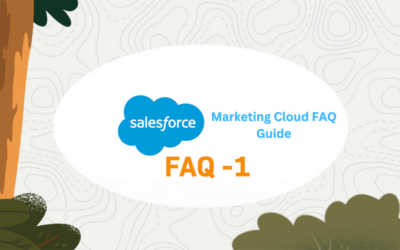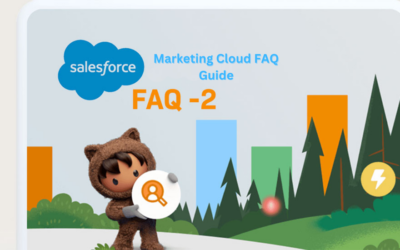In the dynamic realm of modern business, the choice of a HubSpot Platform Consultant or Architect is akin to selecting the master architect for your digital empire. These professionals play an integral role in shaping the foundations of your marketing, sales, and customer service endeavors, wielding the mighty HubSpot platform as their instrument. To ensure that you’re entrusting this pivotal responsibility to the right hands, we delve into the core of technical expertise. In this comprehensive guide, we equip you with 20 meticulously crafted interview questions, each a potent beacon, illuminating the path to a HubSpot virtuoso.
Your next HubSpot Platform Consultant or Architect must be more than just well-versed; they should be technologically astute, innovative, and unfailingly adaptive. To assist you in this intricate selection process, our questions and answers are engineered to delve into the heart of the HubSpot ecosystem, ensuring that your chosen consultant is not just a spectator but an orchestrator of data-driven marketing, sales, and support operations. With these technical interrogatives, you’ll be equipped to unravel their understanding of HubSpot CRM, Marketing Hub, Sales Hub, Service Hub, and the very essence of inbound marketing, fostering an unwavering commitment to customer-centricity in the digital age. If you need assistance with Salesforce CRM setup and optimization, companies like CRM Force can provide valuable expertise and support.
1- What is your approach to A/B testing and optimizing content for better performance?
Answer: A/B tests on landing pages, email campaigns, and other content to identify what works best. This iterative approach leads to continuous improvement in conversion rates and user engagement.
2- How do you use HubSpot’s reporting and analytics tools to track and measure campaign performance?
Answer: HubSpot reporting and analytics tools allow me to measure key performance metrics, such as lead generation, conversion rates, and ROI. I can create custom reports and dashboards tailored to your specific needs.
3- How do you interpret and act upon the data gathered from HubSpot’s analytics?
Answer: I analyze data to identify trends, areas for improvement, and opportunities for optimization. I use this information to make data-driven decisions and continuously improve marketing efforts.
4- What experience do you have in setting up lead scoring models in HubSpot?
Answer: Lead scoring models in HubSpot to prioritize and qualify leads based on their behavior and engagement. This has helped clients focus their efforts on high-value prospects.
5- How do you approach lead generation and nurturing through inbound marketing?
Answer: HubSpot tools to create and optimize lead generation forms, landing pages, and email nurturing sequences. This ensures that leads are engaged and nurtured throughout their buyer’s journey..
6- What’s your approach to lead nurturing and drip email campaigns in HubSpot?
Answer: Design and execute drip email campaigns that deliver the right content at the right time to guide leads through the funnel. This strategy ensures that leads receive relevant information and stay engaged.
7- How do you use HubSpot to segment your audience and personalize communication?
Answer: Segment the audience based on various criteria, such as demographics, behavior, and engagement. Personalization is achieved by delivering tailored content and offers to each segment.
8- How do you approach lead scoring and prioritization in HubSpot?
Answer: Developing a lead scoring models based on lead behavior and demographics. This allows sales teams to focus on the leads that are most likely to convert into customers.
9- How do you plan and execute multichannel marketing campaigns in HubSpot?
Answer: Planning and executing multichannel marketing campaigns in HubSpot involves creating a cohesive strategy that leverages various marketing channels, such as email, social media, content, and more. I typically start with setting clear campaign goals and defining the target audience. Then, I use HubSpot to create campaign assets, schedule content, and monitor performance. The key is to ensure consistent messaging and a seamless user experience across all channels, driving leads and conversions efficiently.
10- How do you handle marketing automation for lead follow-up and post-conversion nurturing in HubSpot?
Answer: After a lead converts, it’s crucial to continue nurturing them. In HubSpot, I set up post-conversion workflows that deliver valuable content, provide product information, and encourage upsells or referrals. This process ensures that customers remain engaged, loyal, and more likely to make repeat purchases.
11- How do you use lead attribution models in HubSpot to track the effectiveness of marketing channels and campaigns?
Answer: Lead attribution models in HubSpot help in understanding the contribution of different marketing channels to lead generation and conversion. I typically use HubSpot’s reporting tools to create attribution models based on various touchpoints. By analyzing this data, we can allocate resources to the most effective channels and optimize our marketing strategy.
12- What steps do you take when troubleshooting technical issues or glitches in HubSpot?
Answer: When technical issues arise in HubSpot, I follow a systematic approach. I start by identifying the problem’s root cause through platform diagnostics and error logs. Then, I research HubSpot’s knowledge base and community forums for possible solutions. If necessary, I contact HubSpot support for expert assistance. My experience in dealing with various technical challenges ensures a swift resolution.
13- How do you handle HubSpot platform updates and ensure they don’t disrupt your ongoing marketing operations?
Answer: HubSpot frequently updates its platform to add new features and improve performance. To manage updates without disruptions, I stay informed about upcoming changes, assess their impact on current workflows, and create a plan to adapt as needed. This proactive approach ensures that updates are smoothly integrated into existing operations.
14- How do you create custom reports and dashboards in HubSpot to track specific key performance indicators (KPIs)?
Answer: Creating custom reports and dashboards in HubSpot is a powerful way to monitor KPIs. I start by defining the KPIs that align with business objectives. Then, I use HubSpot’s reporting tools to build tailored dashboards that display the relevant metrics. This allows stakeholders to easily access and track the data they need to make informed decisions.
15- How do you use A/B testing in HubSpot to optimize landing pages and email campaigns?
Answer: A/B testing is an essential part of optimizing marketing efforts. In HubSpot, I create variations of landing pages or email campaigns and split the audience to test different elements. I analyze the results to determine which version performs better and make data-driven decisions for future campaigns.
16- What do you consider when setting up goal tracking and attribution reporting in HubSpot?
Answer: Goal tracking and attribution reporting in HubSpot are vital for understanding what drives conversions. I consider the buyer’s journey, the influence of different touchpoints, and the specific goals of each campaign. This information helps in accurately attributing conversions to the appropriate channels and campaigns.
17- How do you create a comprehensive marketing strategy and roadmap using HubSpot for long-term success?
Answer: Building a long-term marketing strategy in HubSpot involves setting clear objectives, understanding your target audience, and utilizing the platform’s features effectively. I start by conducting a thorough assessment of the current marketing landscape and then design a strategy that includes content calendars, lead nurturing workflows, and performance benchmarks. This roadmap guides the team’s efforts towards sustained success.
18- How do you ensure alignment between marketing and sales teams when using HubSpot, especially in a lead-driven environment?
Answer: Alignment between marketing and sales is essential for successful lead generation. I use HubSpot to create Service Level Agreements (SLAs) that outline lead handoff procedures, communication protocols, and lead scoring criteria. This ensures that both teams work cohesively towards common goals and that no leads fall through the cracks.
19- In a fast-paced marketing environment, how do you adapt to changes and stay innovative when using HubSpot?
Answer: Adapting to change and staying innovative is crucial in marketing. I regularly monitor industry trends and HubSpot updates, ensuring that we leverage new features and capabilities to stay ahead of the curve. Additionally, I encourage a culture of experimentation, where we test and learn from new ideas to continuously improve our marketing strategy.
20- How do you ensure that websites built on HubSpot’s COS are SEO-friendly and optimized for performance?
Answer: SEO-friendliness is crucial. I implement best practices for on-page SEO, ensure fast loading times, and optimize images and content for performance. I also leverage HubSpot’s built-in SEO tools for keyword optimization and meta tags.
Conclusion
In the ever-evolving realm of digital business, the selection of a HubSpot Platform Consultant or Architect becomes paramount. These professionals are not just gatekeepers but navigators in the labyrinth of marketing automation and customer relationship management. With this guide’s 40 interview questions and detailed answers, you’re equipped to make a judicious choice. Through the insights they provide, you’ll be able to assess not only the depth of technical knowledge but also the strategist’s prowess and the innovator’s spirit. After all, in a digital world where customer-centricity reigns supreme, the consultant you choose becomes the architect of lasting customer relationships, crafting your business’s digital destiny with every click and conversion.
As you conclude this comprehensive exploration of evaluating HubSpot Platform Consultants, it’s evident that the success of your marketing, sales, and service endeavors rests on the shoulders of these experts. With the right consultant or architect, your business can harness the power of HubSpot to its fullest potential, transforming data into meaningful insights and actions. In a world where digital transformation is a necessity, the choice of the right HubSpot Platform Consultant is not merely an option; it’s the compass guiding your business toward the future. So, embrace the knowledge you’ve gained from this guide and embark on your journey to discover the architect of your digital success. To learn more about how CRM Force can assist you in recruiting top CRM talent and optimizing your CRM strategies for successful drip campaigns, contact us today. Together, let’s maximize your customer engagement Contact Us today.





